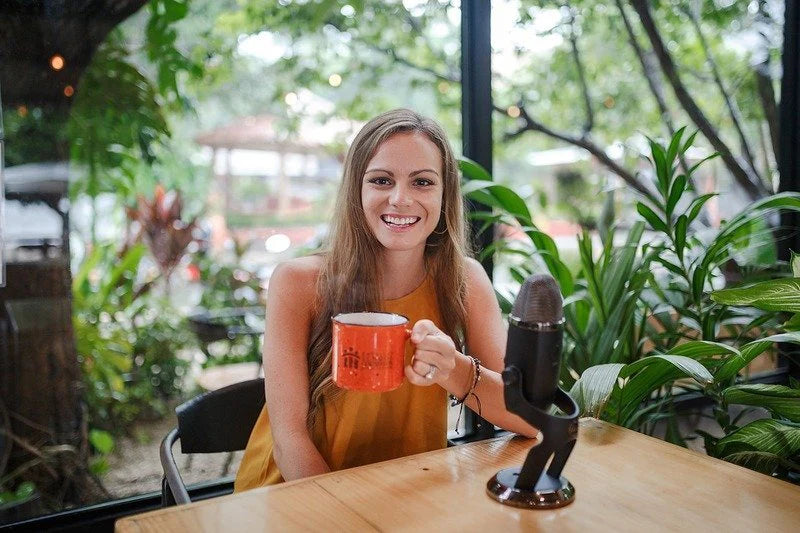242. How to "addiction proof" your students with Kriya Lendzion

Listen to the full episode below:
Welcome back to another episode of School Counseling Simplified! This month, I’m excited to bring you guest sessions with experts, and today’s episode is a special one. I have with me Kriya Lendzion, a school counselor turned prevention specialist who focuses on addiction prevention.
Originally inspired by her personal journey through teen addiction, Kriya Lendzion is fiercely dedicated to helping educators prevent and intervene early in students’ addictive and self-destructive behaviors. She combines her 23 years as a School Counselor with additional expertise as a Licensed Clinical Addiction Specialist, Certified Prevention Specialist, and Adolescent Therapist, providing schools across the globe with drug and alcohol education, professional development, curriculum, and consultation. Kriya splits her time between beautiful Asheville, North Carolina and Glastonbury, Connecticut.
We’re diving into how you can “addiction-proof” your students, covering everything from vaping to screens. Kriya’s work is rooted in both experience and expertise—she’s a former school counselor who has worked with diverse age groups, an addiction clinician, and now, a prevention specialist dedicated to helping schools implement effective drug education and early intervention strategies.
Why Prevention Matters
Students are constantly receiving messages that counteract what we teach about addiction. From social media to peer influence, they’re often told that addiction is harmless. Our job as educators and counselors is to speak louder, more often, and in ways that truly reach them.
Kriya outlines five key categories that help schools establish effective addiction prevention programs:
1. Research-Based Information (Science-Based Education)
-
Information needs to be accurate, research-backed, and tailored to students’ values and realities.
-
Present information in a non-judgmental way—empowering students with knowledge and choice builds respect.
Use passive reinforcement strategies like bulletin boards, signs, and classroom posters to keep prevention messaging visible.
2. Collaboration to Delay Substance Use
-
Work across departments to help students delay substance use as long as possible.
-
Curricular infusion: Integrate drug education into multiple subjects, making it a part of every student’s learning.
-
Foster school connectedness so that every student feels seen, valued, and supported.
-
Provide parent and family resources so that parents have the right knowledge to engage in open, informed conversations with their children.
-
Involve administration and peer-led programs to create a whole-school prevention culture.
3. Teaching Resistance Skills
-
Equip students with practical tools to say no to addiction before they face pressure.
-
Weave prevention programming into classes and school activities.
-
Use media and storytelling to make lessons relatable.
-
Start early with age-appropriate discussions—even in kindergarten.
-
Instill strong values and goals that help students make healthier choices.
-
Encourage collaboration among teachers, counselors, and parents to reinforce these lessons.
4. Value Exploration Activities
-
Help students identify their own values and how addiction could impact them.
-
Use reflective activities to help students connect their goals and aspirations with their choices.
5. Addressing Adolescent Needs
-
Understand that addiction often stems from unmet needs.
-
Provide healthy alternatives and coping strategies to help students navigate stress, emotions, and peer pressure.
Final Thoughts
Kriya’s insights highlight the importance of proactive prevention strategies in schools. By implementing these five categories, we can empower students with knowledge, skills, and support to make healthy choices.
If you’d like to learn more about Kriya’s work, be sure to check out the links in the show notes. Thank you for tuning in, and I’ll see you next week for another episode of School Counseling Simplified!
Resources mentioned:
-
If you are enjoying School Counseling Simplified please follow and leave us a review on Apple Podcasts!
Connect with Rachel:
Connect with Kriya:
More About School Counseling Simplified:
School Counseling Simplified is a podcast offering easy to implement strategies for busy school counselors. The host, Rachel Davis from Bright Futures Counseling, shares tips and tricks she has learned from her years of experience as a school counselor both in the US and at an international school in Costa Rica.
You can listen to School Counseling Simplified on Apple Podcasts, Spotify, Google Podcasts, and more!
SHARE:


